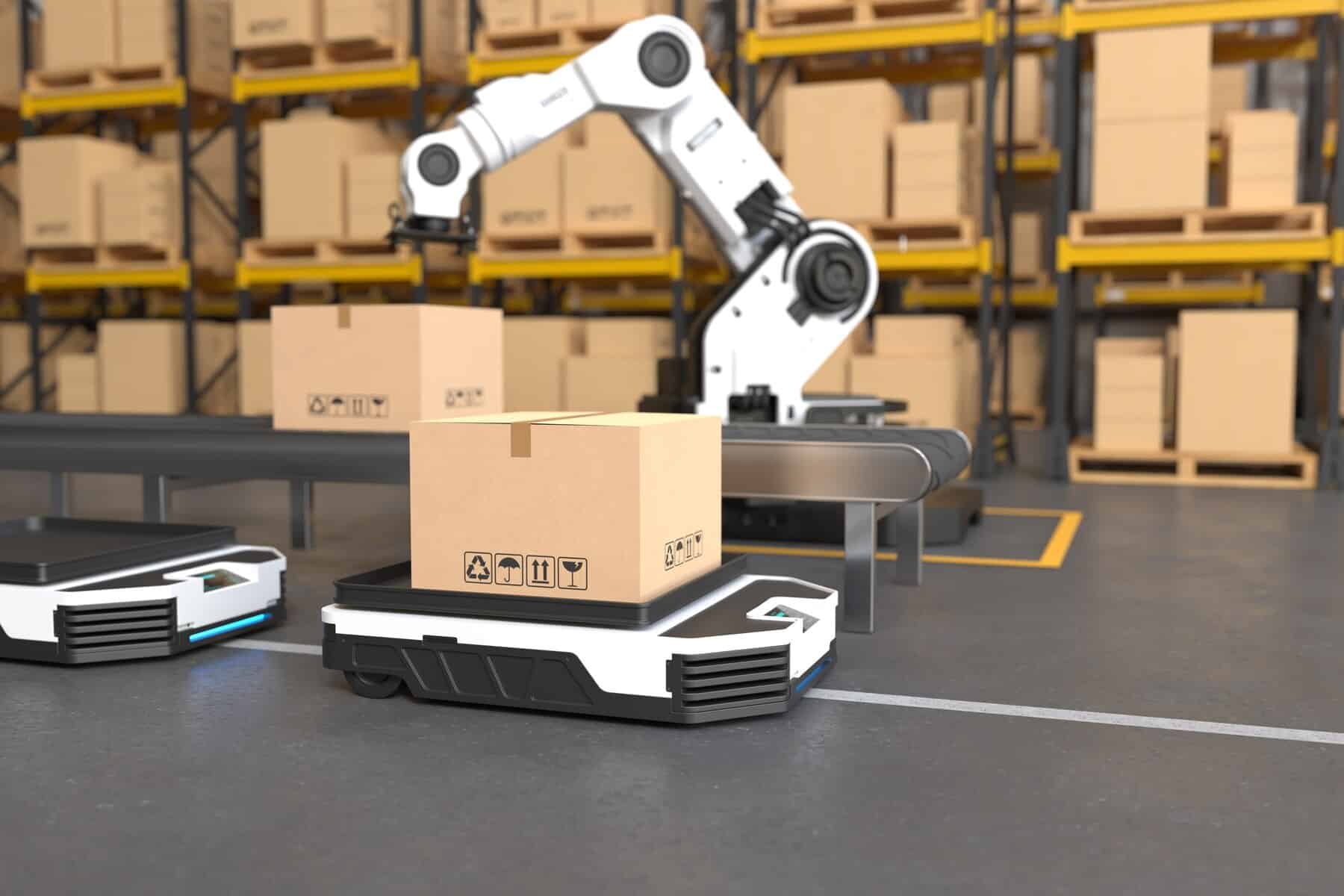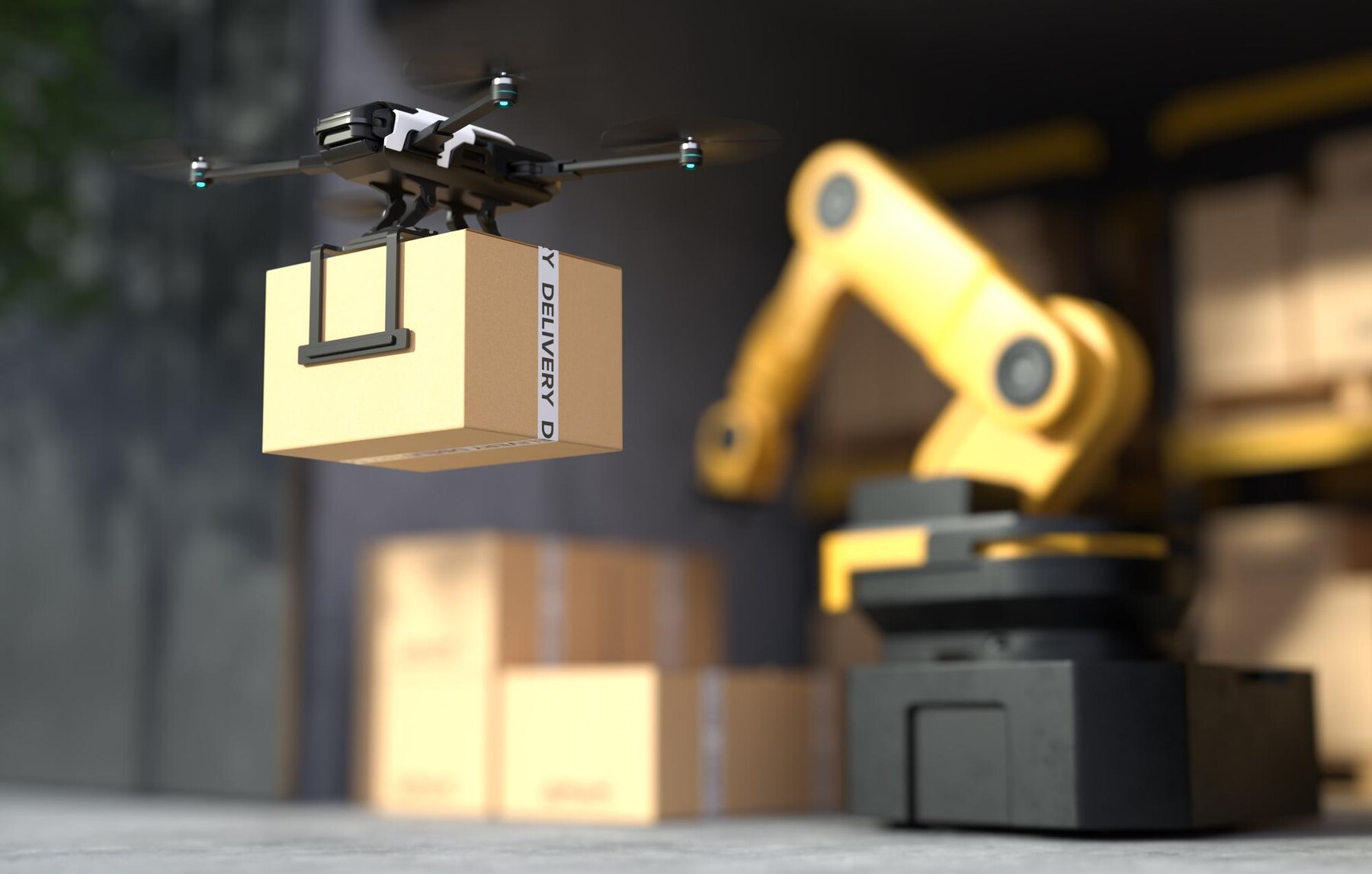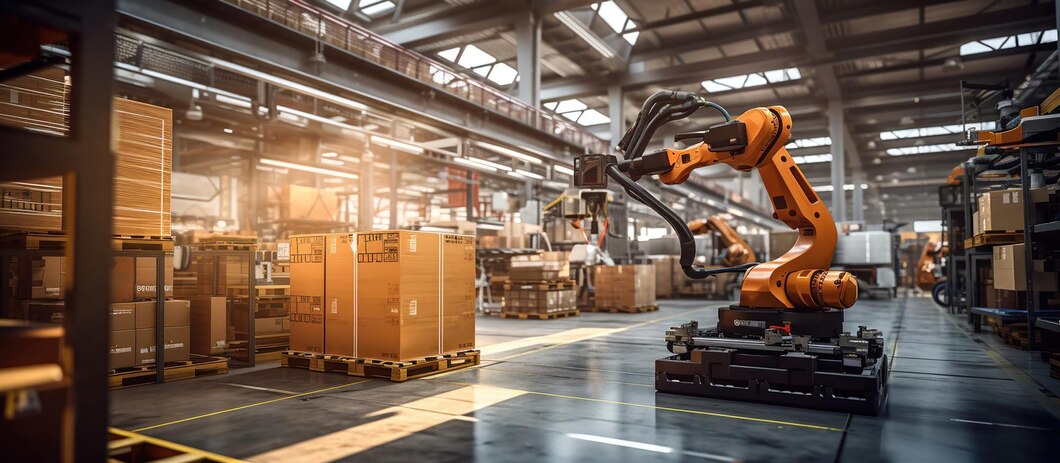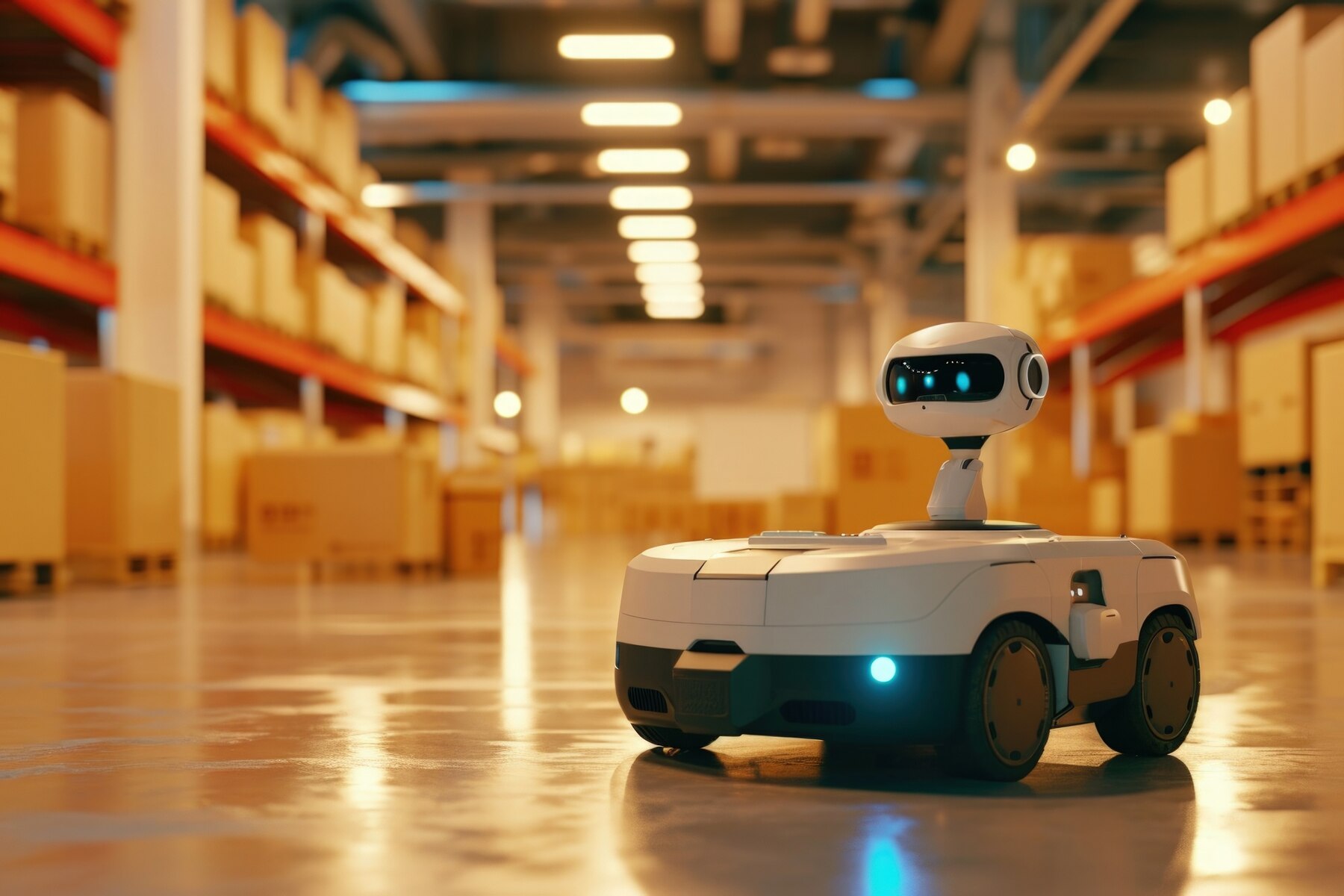
How to Leverage AI for Smarter Supply Chain and Logistics
In logistics, AI disrupts how goods travel from manufacturers to consumers in today’s rapidly moving global ecosystem. Organisations are adopting innovative supply chain management to increase operational efficiency, reduce costs, and enable more intelligent decisions in an era of rising customer expectations and increasingly complex supply networks. Artificial intelligence is revolutionising logistics, from predictive analytics to AI-driven delivery solutions.
Traditionally, businesses relied on linearly planned supply chains, but AI has enabled a transformation into proactive, data-driven, and predictive supply chain strategies. AI-driven Businesses forecast better, have lower operational costs, and offer better customer experiences. But in an increasingly complex supply chain world, AI is fast becoming a must-have for companies looking to remain competitive.
This article will explore AI’s role in logistics, its benefits, use cases, and how companies can adopt AI-based solutions to retain a leading edge in the market.
Pro Tip: Implement AI in phases by starting with small pilot projects such as AI-driven demand forecasting or route optimisation. This approach helps businesses measure impact, adjust strategies, and ensure smooth integration before scaling AI solutions company-wide.
Quick Guide:
- AI in Supply Chains: AI enhances efficiency with automation, predictive analytics, and smart routing.
- Key Benefits: Cost reduction, improved decision-making, increased resilience, and sustainability.
- AI-Powered Delivery: Includes autonomous vehicles, drones, smart routing, and chatbots for customer support.
- Challenges & Solutions: Overcome integration difficulties with gradual implementation, AI training, and cybersecurity measures.
- Future Trends: Hyperautomation, blockchain integration, real-time AI processing, and digital twins for logistics optimisation.
Important Tip: AI is an investment, not just an expense. Businesses that proactively adopt AI-driven logistics will improve efficiency and resilience while staying ahead of competitors in an increasingly automated world.
The Role of AI in Modern Supply Chains

AI is more than a futuristic idea—it enhances supply chains by boosting efficiency and accuracy. Businesses use AI to analyse large datasets, foresee disruptions, automate tasks, and enrich customer experiences.
Key Functions of AI in Supply Chain Management
- Autonomous Demand Forecasting: AI algorithms can analyse historical sales data, market trends, and external factors such as weather to ensure future demand is accurately predicted. This allows businesses to align inventory levels with customer demand, reducing shortages and overstocking.
Inventory Optimisation: AI assists businesses in maintaining optimal inventory levels, reducing the chances of overstocking or stockouts. AI enables real-time tracking and automated replenishment of product stock at warehouses, thus reducing capital waste and ensuring that there is always enough stock. - Route Optimisation: AI logistics platforms find the most efficient delivery routes, cutting fuel costs and speeding up deliveries. Machine learning models assess real-time traffic, weather, and past data to adjust routes dynamically for quicker, cheaper deliveries.
- Warehouse Automation: AI robots and automated picking systems boost warehouse efficiency and speed up order fulfilment. Autonomous mobile robots (AMRs) and robotic arms improve sorting, packaging, and shipping, reducing reliance on manual labour and enhancing efficiency.
- Real-time Tracking: AI and IoT devices give real-time insights into shipments, lowering uncertainties and improving logistics planning. With RFID sensors, GPS tracking, and AI dashboards, businesses can more accurately monitor their supply chain movements.
By integrating AI in these areas, companies can boost efficiency, lower errors, and create a more resilient supply chain.
AI-Powered Delivery Solutions
One primary use of AI in logistics is in AI-powered delivery solutions. Companies like Amazon, DHL, and UPS invest heavily in AI innovations to streamline delivery operations.
How AI is Transforming Deliveries
- Autonomous Vehicles & Drones
- Self-driving delivery trucks and drones reduce human involvement and lower last-mile delivery costs.
- Companies like Tesla, Waymo, and Starship Technologies lead this innovation, creating AI vehicles that improve speed and safety.
- Amazon’s Prime Air drones aim to deliver in under 30 minutes, cutting reliance on human couriers and lowering costs.
- Smart Routing Algorithms
- AI analyses real-time traffic and weather to recommend the fastest delivery routes.
- This boosts efficiency and cuts fuel use, lowering carbon footprints.
- For example, UPS’s ORION (On-Road Integrated Optimization and Navigation) system helps drivers avoid unnecessary turns and save millions in fuel costs annually.
- AI-Powered Chatbots for Customer Communication
- AI chatbots give customers instant updates on their deliveries.
- They can also answer common questions, easing the load on customer service teams.
- Companies like FedEx use AI customer support systems to manage tracking requests and inquiries, enhancing response times and customer satisfaction.
- Predictive Delivery Windows
- AI uses delivery data to provide accurate arrival times.
- This cuts down on missed deliveries and boosts customer satisfaction.
- Machine learning algorithms help retailers alert customers about real-time delays, ensuring better transparency and reliability.
Smart Supply Chain Management: A Game-Changer
Benefits of AI in Smart Supply Chain Management
- Increased Efficiency: Automating routine tasks lets businesses focus on strategic decisions.
- Cost Reduction: AI cuts waste, optimises routes, and lowers manual errors, reducing costs.
- Enhanced Decision-Making: AI insights help managers make informed choices.
- Improved Resilience: AI predicts disruptions (like supply shortages or delays) and suggests proactive solutions.
- Sustainability Gains: AI optimises supply chains to lower carbon emissions and supports eco-friendly logistics.
Real-World Examples
- Amazon
- AI robots are used in warehouses for efficient sorting and packaging.
- AI-driven demand forecasting helps manage inventory well.
- AI voice assistants and smart warehouses improve operational efficiency.
- DHL
- Uses AI for predictive maintenance of delivery vehicles.
- Employs chatbots to enhance customer service.
- Developed an AI analytics platform to help businesses optimise logistics.
- Walmart
- Uses AI analytics to track inventory levels in real-time.
- AI optimises supply chain routes, cutting fuel costs.
- Uses computer vision AI to oversee in-store inventory, reducing shortages and enhancing shopping experiences.
Overcoming Challenges in AI Adoption
Even with many benefits, implementing AI in logistics has challenges.
Common Barriers
- High Initial Investment: AI systems often require significant upfront costs.
- Integration with Legacy Systems: Many businesses find linking AI with outdated software hard.
- Data Privacy & Security Risks: AI needs large datasets, raising concerns about security and privacy.
- Workforce Resistance: Employees may fear job loss due to automation, which requires proper change management.
Solutions
- Gradual Implementation: Start with pilot projects before rolling out AI solutions across the company.
- Training & Upskilling: Provide employees with AI training to improve teamwork between humans and machines.
- Robust Cybersecurity Measures: Invest in secure AI systems to protect sensitive data.
- AI-as-a-Service Models: Companies can use cloud-based AI solutions to lower initial costs.
The Future of AI in Logistics

AI in logistics is constantly evolving, and future advancements will further transform the industry. Here are some emerging trends:
- Hyperautomation: Combining AI, machine learning, and robotics for complete supply chain automation.
- AI & Blockchain Integration: Improving supply chain transparency and security using blockchain.
- Edge AI for Faster Decision-Making: AI devices will process data in real-time, reducing reliance on central systems.
- Sustainable Logistics: AI will significantly aid in lowering emissions and optimising eco-friendly practices.
- Digital Twins in Supply Chains: Virtual AI models of supply chain operations to enhance efficiency and risk management.
FAQs
1. How does AI improve supply chain efficiency?
AI enhances efficiency by automating processes, optimising inventory management, predicting demand, and identifying the fastest delivery routes. It helps businesses reduce operational costs and improve decision-making.
2. What are the challenges of implementing AI in logistics?
Common challenges include high initial investment costs, integration with legacy systems, data security risks, and workforce adaptation. Companies can overcome these by adopting AI gradually, investing in training, and ensuring strong cybersecurity measures.
3. How do AI-powered delivery solutions work?
AI-driven delivery systems use machine learning to optimise routes, deploy autonomous vehicles and drones, and improve last-mile logistics. AI-powered chatbots also enhance customer communication and tracking.
4. Can AI help reduce supply chain disruptions?
Yes, AI predicts potential disruptions, such as supplier delays or weather-related transport issues, by analysing real-time data. This allows businesses to take proactive measures and maintain smooth operations.
5. What is the future of AI in logistics?
The future includes hyper automation, AI-blockchain integration for better transparency, edge AI for real-time decision-making, and sustainable logistics solutions to reduce carbon footprints. AI will continue driving efficiency and innovation in supply chain management.
The Future of AI in Supply Chain and Logistics

AI revolutionises innovative supply chain management with unparalleled utility, cost-effectiveness, and sustainability. Artificial Intelligence – From predictive analytics to AI-powered delivery solutions, businesses riding the AI wave will have a competitive advantage in the ever-changing logistics landscape.
Companies should invest in AI innovations, integrate them with existing systems, and train their workforce. No future in logistics will be innovative, automated, and AI-driven—adoption is the only way forward.
Are you ready to optimise your supply chain with AI? Contact us today to explore AI-powered solutions for your business!


